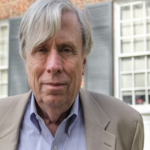The penultimate work written by the late Peter Augustine Lawler was American Heresies and Higher Education, and it was in this area of work where Peter and I worked most closely. In fact, hours after his death on May 23, 2017, I messaged him about an article the two of us were planning to co-author, sending him a piece I thought would be worth critiquing, only to find out later that day that I would never hear back from him. I had seen him only a couple months before at the 2017 Ciceronian Society conference at LSU. He had given a talk on his book, and he seemed like his usual self, indulging in his usual irony when I managed to get us lost in the neighborhoods of Baton Rouge on our way to attend a talk by Rod Dreher on the Benedict Option. We barely made it on time.
MOOCs and MOOAs
As his book title indicates, Peter was a heretic among conservatives on matters of higher education. When he wrote it, conservatives like Andy Kessler and Mona Charen and libertarians like Tyler Cowen and Alex Tabarrok advocated the view that higher education was a cartel that needed to be broken up in favor of scalable massively open online courses (MOOCs). These MOOCs would be taught by the best instructors and would bypass legacy “brick-and-mortar” institutions. Peter thought this view misunderstood both human nature and the nature of education. As one finds throughout his work, Peter believed humans to be relational, meaning that they found purpose only in families, communities, and institutions, including liberal arts colleges like Berry College, where he had been a fixture on the faculty. To “scale” classes in liberal arts was to render them impersonal, thus depriving students of the classroom’s communal significance and leaving them to ingest a course’s information in isolation. The relationship between student and teacher is inextricable from instruction in a subject, meaning that MOOCs did not promise to liberate education but to annihilate it.
My favorite heresy from the book was his rival institution of the MOOA, or the massively open online administration. MOOAs would be clusters of contingency administrators who oversaw all the rat’s nest of federal compliance and accreditation standards. Administrative tasks—not teaching, which is the heart of higher education—should be automated. Bureaucracy too often consumes great quantities of faculty time away from mentorship and research. Worse, administrators have replaced the self-governing faculty and reduced them to mere employees rather than colleagues. What better way to return administrators to their proper role than to reduce them—rather than faculty—to contingency. This heresy would have the added advantage of saving money. As Peter loved to point out, faculty are actually cheaper than administrators, and provide something of real value: an education. Moreover, liberal arts faculty are the cheapest, requiring some classrooms and books, the latter of which one could find cheap or even free of charge.
Start your day with Public Discourse
Sign up and get our daily essays sent straight to your inbox.Of course, what truly made this a heresy was that Peter defended faculty at all. The conservative appeal of MOOCs was not just scale but also the idea of sending tenured radicals to the unemployment line. MOOCs would purge the mediocre ideologues from higher education and, therefore, from their nefarious influence on young minds. But Peter knew full well that the problem had long since moved on from the vindictive campus Marxist to the administrator class, which strives to micromanage faculty. Only recently have conservatives noticed how campus bureaucracies have ballooned in number and cost, while also increasing their control over students and faculty alike in a kind of private police state.
Administrators have replaced the self-governing faculty and reduced them to mere employees rather than colleagues. What better way to return administrators to their proper role than to reduce them—rather than faculty—to contingency.
Wondering and Wandering
When Peter and I spoke about MOOAs, he confessed that he was half-serious. The half that was unserious was provocation, meaning that he knew that the suggestion would not gain much purchase. The reason was that administrators and MOOC enthusiasts were on the same team, as the implementation of MOOCs favored administrators who could reduce the ever-annoying faculty to permanent peonage. The half that was serious, however, was the matter of preserving faculty’s role in forming students. For decades, conservative philanthropies supported conservative scholars who had only recently begun to make their way into faculty positions. To see many of these conservatives turn their back on faculty was not only to betray the faculty themselves, but the potential students they would teach.
It is no wonder, then, that these same conservatives will not take seriously what Peter recommended half-seriously. Instead, conservatives today have increasingly adopted a simply anti-educational message, like that of Texas lieutenant governor Dan Patrick. Invoking the threat of critical race theory (CRT) curriculum in public higher education, Patrick advocates essentially revoking tenure from Texas’s public universities. The move would have the unintended consequence of removing conservative faculty’s last defense against hostile university leadership. Without tenure, conservative faculty would be effectively silenced for fear of losing their jobs. The university administrators would enforce progressive monoculture and seek out conservative faculty for failing to adhere to the inevitable mandatory speech codes, or for violating the narrowly and ideologically defined standards of “diversity, equity, and inclusion.”
The irony behind Peter’s use of the term “heresy” was that what he taught was, in fact, orthodoxy. The real heretics are those who want to annihilate the relational nature of learning and those who want to reduce it to ideological tests. To restore higher education as it should be is not so easy as an administration buying a premium Canvas subscription or surrendering faculty to the mercy of administrative arbitration. On the contrary, a proper understanding of education means embracing the creation of small liberal arts colleges in which students have the leisure to study and faculty the leisure to teach them. Such a culture is foreign to the high-achieving types inhabiting corporate boardrooms and university boards of visitors.
As Peter liked to say, every human person is “wondering and wandering,” and higher education is where one wonders and wanders the most. Like distilling whiskey and producing aged cheese, education takes time—reading, writing, talking, thinking. To those bound up in standards of efficiency, wondering and wandering seem like a waste of time. But there is no other way for a person to learn. The best and only way to pursue liberal learning is with leisure; therefore, to deny students the leisure for learning is to reduce its “efficiency.”
The irony behind Peter’s use of the term “heresy” was that what he taught was, in fact, orthodoxy. The real heretics are those who want to annihilate the relational nature of learning and those who want to reduce it to ideological tests.
Diverse Institutions
Surely not everyone is called to liberal learning, right? Peter would agree, which is why he argued for preserving diversity in higher education institutions—seminaries, technical schools, research universities, small liberal arts colleges, historically black institutions, and religious institutions. The diversity found in America should have its expression in the diversity of higher educational institutions. To preserve that diversity requires ending both fruitless attempts of conservatives to reduce education to uploading and downloading information, and progressive attempts to reengineer education into a four-year struggle session.
If Patrick is so unhappy with the state of Texas public education, then perhaps he should fund the creation of public liberal arts colleges dedicated to studying a classical curriculum. If that proves too difficult, then he should consider consolidating public university administration and using the savings to enable in-state students to attend for free. While he is at it, he could endorse protections for embattled conservative faculty and see to it that their numbers increase—but not for the purpose of counter-ideological tests. Rather, all his efforts should be to provide the leisure for faculty and students to restore the relational nature of learning. There would be no better way to honor the memory of a great man.
I could leave off here, but I wish to honor Peter in one last way—the way he educated me over the years. As with all education, his mentorship took time. I first met him during one of his regular visits to the University of Virginia, where I was a graduate student. After he met me, we kept in regular touch. When we would end up at the same conference, I would stick by his side as much as I could, often in the company of Daniel J. Mahoney and Jim Pontuso.
I did not realize it at the time, but Peter used these moments as opportunities for formation in being a good professor. He slowly doled out advice on how and whether an academic should publish more popular work, where I might be the best fit as a faculty member (he strongly encouraged me to apply to Ave Maria University, where I am today), and how to be a good colleague. Most of all, he modeled a more traditional approach of faculty—not one as an overachiever bristling with grants and publications, but as a pilgrim in this world who finds in the university a welcome sojourn while seeking the next world. I hope he found his way there. And I hope he can, at least, cease wandering and only wonder at what he sees, and that I might see him again when the time comes.
This essay is part of Public Discourse’s symposium “Commemorating Peter Augustine Lawler Five Years Later.” The symposium began with Lawler’s critical introduction to John Courtney Murray’s We Hold These Truths. Other contributions include Daniel J. Mahoney on Lawler’s vision as a Catholic political philosopher and Richard Reinsch on Lawler’s understanding of America’s constitutional tradition.














